WELCOME TO MILLENNIUM CLASS
Class teacher - Mrs Katherine Fallon
Please click here for information on the Year 4 Statutory Times Tables Test
Recommended reading books for Year 4:
Best Books for Year 4 | Y4 Reading List | BooksForTopics
Expertly selected books for 7 and 8 year old children (lovereading4kids.co.uk)
Expertly selected books for 9 and 10 year old children (lovereading4kids.co.uk)
[dropshadowbox align=”none” effect=”lifted-both” width=”auto” height=”” background_color=”#f6f134″ border_width=”1″ border_color=”#dddddd” ]
Here is your home learning for the week:
Remember do a little each day and don’t feel that you need to get everything completed[/dropshadowbox]
English-Our English work this week is really topical and I hope you will enjoy it.
Have you seen in the news recently that statues of slave owners and those who made their money through the slave trade are being pulled down? If you want to find out more check out Newsround’s coverage aimed at children your age. https://www.bbc.co.uk/newsround/52965665
Monday 22nd June– Listen to the story Henry’s Freedom Box.
https://www.youtube.com/watch?v=-41aaH6Vv6c
Order the events described. Answer questions about the story. Year 4 Week 10 Day 1
Day 2 – Listen to two versions of the story. Read extracts and then answer questions. Choose key events and use these to summarise the plot.Year 4 Week 10 Day 2
Day 3 – Completing a cloze activity on Henry’s Freedom Box. Reading an information text about slavery and answering questions. Writing in role. Year 4 Week 10 Day 3
Day 4 – Read a classic poem: ‘Sea Fever’. Revise possessive apostrophes and complete an exercise. Practise reading the poem aloud. Year 4 Week 10 Day 4
Day 5 – Read a classic poem: ‘Amulet’. Revise possessive apostrophes. Write a poem based on the one read.Year 4 Week 10 Day 5
I love this poem. Hope you do too!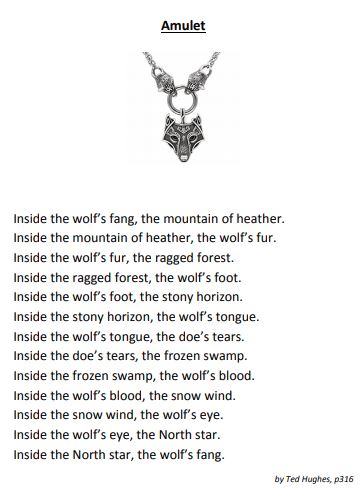
Guided Reading–
Daily Reading Ancient Egypt Activity 5 – Print Friendly
Ancient Egyptian Poem Activity Sheet
Maths-This week we will be working with money
Monday-
Answers Monday 22nd June Estimate answers
Tuesday-
Lesson 2 – Checking strategies
Answers Tuesday 23rd June Checking strategies
Wednesday-Lesson 3 https://whiterosemaths.com/homelearning/year-4/
Lesson-3-Answers-Estimating-money
Thursday-Lesson 4 https://whiterosemaths.com/homelearning/year-4/
Lesson-4-Answers-Four-operations (1)
Friday- https://whiterosemaths.com/homelearning/year-4/
https://whiterosemaths.com/homelearning/year-4/

Science-Let’s get back to our exciting electricity topic:
L.O- I can answer an enquiry about conductors and insulators
Enquiry question-What materials would you use instead of wires in a circuit?
Read this news story about soldiers wearing ‘smart’ clothing which conducts electricity: https://www.bbc.co.uk/news/technology-17580666
Can you remember what the terms conductors and insulators mean? Watch this video if you are unsure-https://www.bbc.co.uk/bitesize/topics/z2882hv/articles/zxv482p
Why do you think a soldier need to be able to conduct electricity?
Think of a soldier in the desert that has ripped part of his ‘smart’ clothing and therefore lost part of the circuit in his GPS system. As he has no other navigation guides he is unable to provide his location for rescue. Which materials are used to make electric circuits? Why they think these materials are used? The soldier has a pack containing a variety of objects. Which could be used to complete a circuit to activate his GPS to save him?
Choose from the objects pictured below:
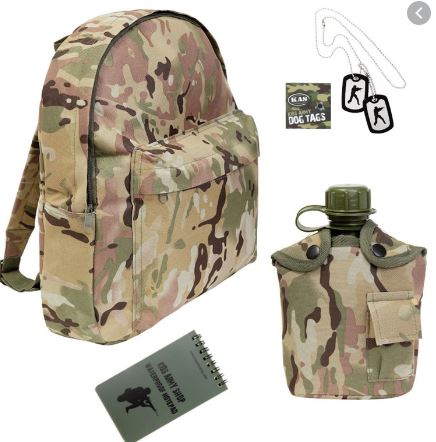
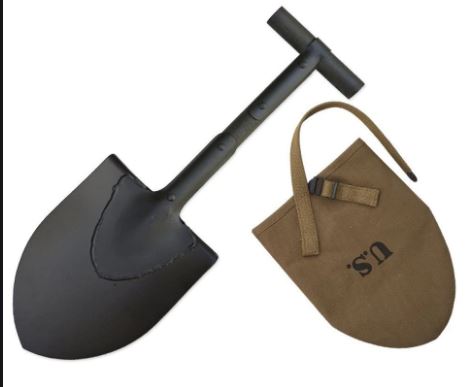
He has a cotton back pack, a plastic cover note pad, a tin water flask, metal dog tags (identification necklaces) and a wooden shovel.
How could you find out whether electricity can pass through the materials?
Can you write an investigation to help to choose which material you could use? Focus on recording their results and explaining what the results show. It could look something like this:

Results (Imagined-What do you think you would have found out?)
Then you will need to produce a radio or video message to send to the soldier explaining what he needs to do to produce a working circuit therefore enabling his GPS and why they are confident that this will work providing scientific evidence to reassure him! You will need to provide a list of all possible conductors in case some are damaged when he comes to use them. You could video this message and post on Class Dojo or write a script.
After you have completed this activity please self-assess using the following criteria. If you send me this self-assessment on Class Dojo I will add you 10 dojo points! You might need to ask a parent to help you with this bit.
Meeting expectation: I can describe the circuit involved in the soldiers suit and explain how my experiments results (orally/written form) would show that (in general) metals conduct electricity and other materials don’t.
Exceeding expectations: As above for meeting, but I can also suggest other items to fit into the pattern and explore exceptions to the rule. I can apply the terms conduct/insulate to explain safety rules, e.g. not putting knife in toaster.
Art-If you enjoyed making mask try designing and making a necklace or some other Egyptian jewellery out of recycled materials
Paper plate or cardboard from your recycling
https://www.firstpalette.com/craft/ancient-egyptian-collar.html
Find out all about ancient Egyptian jewellery
https://www.youtube.com/watch?v=4-7QMvCngYk
https://www.youtube.com/watch?v=_QC04hBfzfc
I.C.T-This week have a break from coding to revise internet safety. Play the game Band Runner
https://www.thinkuknow.co.uk/8_10/
Watch the 3 films if you have time. https://www.thinkuknow.co.uk/8_10/watch/. Could you record your own video teaching next year’s year four classes what you have learnt? Alternatively you could design a poster to show what you now know.
Latin
We are continuing with our exploration of the past continuous tense. Try the exercises, answers on the following slides. There is also a section about constellations and the stories behind them. Maybe you can have a go at stargazing and see which you can spot? Let us know if you find any!Latin past continuous and constellations
Music
Please continue to have a go at music maker or try some of the new songs on Out of the Ark
Hello Year Four! Welcome to your home learning for this week. Remember, do not worry if you cannot find the time to do all of the work or if you are not able to access everything on the blog. Just try to do a little a day.
English
We are looking at a series of new stories this week.
Day one-Start by looking at the front cover and first page of Night Shimmy and make your predictions before you watch the story below. Year 4 Week 13 Day 1
Day two-Today you are looking at the story Silly Billy. What did you think of it? Has it made you think of anything else? Use the worry doll instructions to help you practise your own instruction writing. Year 4 Week 13 Day 2
If you need some help with instruction writing, have a look at the video below for ideas about worry dolls
You can also use this website for pointers if you have forgotten how to write instructions
https://www.bbc.co.uk/bitesize/topics/zkgcwmn/articles/zfrcmfr
Day three-Today, compare the two stories you have read so far. Answer the comparison questions and then think about what you could use to help you to deal with your own worries. If you have a lot of worries, remember to speak to your grown ups about them so that they can help! Year 4 Week 13 Day 3
Day four-You have a new story to listen to today. What do you think of it? Do you have a favourite character? Why do you think the author has chosen to write it this way?
After you have spent some time thinking about the characters f the book, you will be doing some writing of your own, from the point of view of the dogs in the park! Year 4 Week 13 Day 4
Day five-You are still thinking about the story from yesterday. Today, recap the importance of paragraphing as you consider the text. Year 4 Week 13 Day 5
If you are unsure about the best way to use paragraphs, have a look at the site below. Only do the activities if you think they will be useful to you!
https://www.bbc.co.uk/bitesize/articles/zv4j7nb
Guided Reading
Daily Reading Ancient Egypt Activity 3 – Print Friendly
Maths
Day one- Following on from the work last week, we are beginning the week with subtracting two four digit numbers.
Have a go at the questions on the worksheet. (Please don’t feel that you have to print everything out, writing your work into your books is perfectly acceptable!)Lesson 1 – Subtract two 4-digit numbers – no exchange
After you have finished, you can check your answers here Lesson 1 Answers – Subtract two 4-digit numbers – no exchange
Day two-Subtracting two four digit numbers with one exchange. Remember to start from the correct column!
Find the worksheet here Lesson 2 – Subtract two 4-digit numbers – one exchange
Check your answers here Lesson 2 Answers – Subtract two 4-digit numbers – one exchange
Day three- Subtract two four digit numbers with more than one exchange
Find the worksheet here Lesson 3 – Subtract two 4-digit numbers – more than one exchange
Check your answers here Lesson 3 Answers – Subtract two 4-digit numbers – more than one exchange
Day four- Efficient subtraction methods. (Remember that efficient means working in a well-organised way ith the minimum wasted effort)
Find the worksheet here Lesson 4 – Efficient subtraction
Check your answers here Lesson 4 Answers – Efficient subtraction
Day five-Watch for the Friday challenge
https://whiterosemaths.com/homelearning/year-4/
or for something different, have a go at the investigation here
https://nrich.maths.org/consecutivenumbers/note
If you normally work with Miss Alvarez, have a go at these lessons instead,
https://whiterosemaths.com/homelearning/year-2/
Please contact your class teacher via Dojo if you need the sheets for these activities!

Science-Let’s get back to our exciting electricity topic:
This week we will be learning about static electricity
Enjoy Miss Simkin’s lesson from Oak Academy-https://classroom.thenational.academy/lessons/what-is-static-electricity
In this lesson, we will be learning all about static electricity. We will learn how static charges occur and what happens when they are discharged. We will also be exploring how to create our own static charges with a balloon! If you have a balloon at home then you can use it for this lesson. If you don’t then don’t worry, you will still be able to watch the demonstrations and complete the lesson.

I.C.T-This week have a go at practising your coding skills with Disney Infinity characters.
https://studio.code.org/s/infinity/stage/1/puzzle/1
Art-Continue making mask. You could design and make a different Egyptian god or goddess.

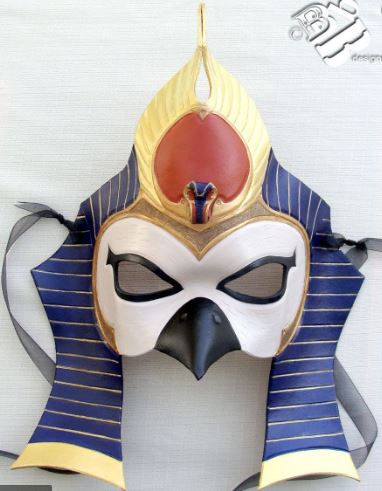
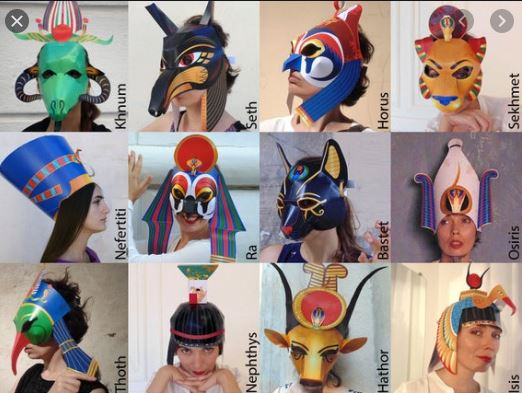
Or make a paper version if you are feeling less ambitious
Egyptian-gods-and-goddesses-role-play masks
History
Egyptian Creation Myth- Read the story of how the Egyptians believed the world and all the people were created. How is it different from your own beliefs? Maybe you could talk about this with your grownups.T2-H-4238-Ancient-Egyptian-Creation-Story-Powerpoint_ver_1
Something easier- design a comic strip version of the story
Something harder- compare the creation myth to another that you are familiar with. What is the same? What is different?
Music
Have a go at the song of the week or some of the songs for well-being here,
https://www.outoftheark.co.uk/ootam-at-home/
As well as our normal music opportunities from Out of the Ark, we also have access to making music from Croydon Music and Arts.
https://www.cma-online.co.uk/making-music
The password is
makingmusic123
Latin
This week we will be continuing to learn about the past continuous tense (I was …….ing) and learning some new verb endings to practise. We will also be thinking about some philosophy. What is reality? Latin past continuous and philosophy
If you want the worksheet for translation practice, it is here Latin past continuous verbs
Have fun with your learning this week and, as always, post your work for us to see on Class Dojo. We love to see how you are doing.
Please message us with any concerns or questions and we will do our best to answer them.
Take care of yourselves Year Four!

